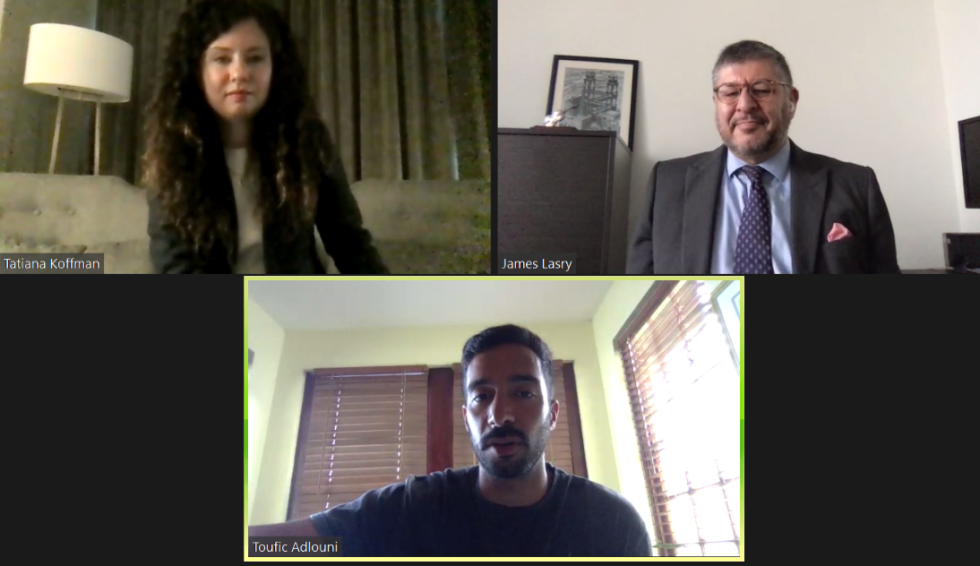
One of the largest gatherings of private wealth in blockchain covers a range of issues, from risks and opportunities in disruptive tech to developing and scaling the next unicorn.
The Global Family Office Summit, a quarterly event launched by the recently formed Global Family Office Wealth Network, highlighted a number of issues that high net worth individuals were eager to address. This is the first time this gathering of private wealth has been held remotely, with participants and viewers tuning in via Zoom, and within Decentraland’s Crypto Valley. The Summit’s mission is to connect various disruptive technology leaders and to help solve many of the world’s problems, as stated by one of the forum’s organizers, GDA Capital’s Michael Gord.
“The Global Family Office Summit has identified three pillars – education, trust, and responsibility to give back,” said Gord. In addition to the regularly scheduled public events featuring speakers from around the world, forum participants will be able to join an invite-only deal club for off-market deals before they hit the market.
Keynote speaker, serial entrepreneur, and investor Candace Johnson said in reference to blockchain technology, “data-driven algorithmic technologies are responsible for today’s digital transformation in almost all fields, from hard sciences to social sciences, to the humanities, as well as in a variety of sectors, from health and commerce to education, law and the arts.” Johnson stressed four key ideas for the future: quantum technologies, humane and social solutions, sustainability, and the circular economy. “I’ve never looked at it [blockchain] as disruptive, I look at it like we are building a better world,” she added.
To her point, the headliner presentation by GDA Capital’s Director of Research Will Bartlett focused on the disruptive tech in the modern economy. He considered digital assets to be a hedge against traditional financial markets. “Cryptocurrencies have no exposure to stock market returns, macroeconomic factors, or returns of currencies and commodities. There is a strong time-series momentum effect, and proxies for investor attention strongly forecast cryptocurrency returns,” his presentation stated. Bartlett identified six sectors where the disruptive technologies shine: robotics, space, biotech, AI and machine learning, quantum computing, and blockchain.
Bartlett also discussed new models for digital assets in his presentation, which includes branded stable coins. Such currencies are backed by the value stored by brands or enterprises, essentially replacing traditional loyalty point systems and putting them on the blockchain. One such project is DigitalBits.
The founder of DigitalBits, Al Burgio, took part in the Developing and Scaling the Next Unicorn panel. Burgio said that investors should identify an opportunity to address a large-scale problem – a mass-market opportunity for the future team and investors who support their vision. “It is a process; once you go through it, define the opportunity, you see the reaction of others… It is about building blocks. Once you have a vision, you build a team, and it boils down to how you operationalize and execute this vision, bring like-minded people with unique sets of skills where everyone will have an input and help overcome challenges. This journey is like a staircase where you have to take each step up, one after another – raising capital, aligning the team, and reaching the milestones,” said Burgio.
Another panel led by GDA Capital Chairman David Shafrir addressed alternative asset investments and gathered a cohort of influentials, including Alpha Sigma Capital CEO Enzo Villani, one of the most recognized asset managers in Europe, Nicholas Verwilghen, and PALcapital founder James Haft, among others. Haft, who has been an advisor to more than 100 venture-backed and blockchain-backed entities, said that trades don’t go in straight lines. Since some traditional banks’ interest rates are currently negative, investors have to diversify their strategies to “make it through the storm.” “Alternative assets don’t stay alternative assets forever; they are an onramp, a sandbox to become mainstream,” said Haft.

Responding to the question on what will drive institutional adoption, Verwilghen said that custody of assets and the hunt for alternative niche premia is what institutional investors are looking for, even in volatile markets.
Answering the question of whether central bank intervention will help or hurt the digital assets industry through the creation of their own centralized digital assets, Villani said it will help, as “the powers are getting into the asset class.”
Other participants shared important insights and observations.
- Dubai-based Dalma Capital’s CEO Zachari Cefaratti discussed Family Offices’ investment strategies for the future in times of uncertainty and a global pandemic. He noted that private direct investments should now be focused on areas that are familiar to investors, in sectors where their families have a business.
- Global Data Sentinel CEO and White City Ventures Chairman of the Board Shahal Khan, who made headlines after entering into an agreement to purchase Plaza Hotel in New York in 2018, addressed the issues of real estate and hospitality on the blockchain, and the “buying low” strategy during crises.
- The CEO of Elitium Raoul Milhado spoke about having a vision and engagement around the action plan, the disruption, and the ability to go forward with keeping every option open, as well as financial and legal compliance.

The forum, which also featured three firesides chats with experts on alternative assets and regulations, ethics, and public policy panel, was wrapped up by entrepreneur Michael Terpin, who spoke about vast investment opportunities during crises and a vision for the future. As highlighted by GDA Capital in a letter to participants, the Summit’s speakers have over 50 years of collective capital market investments, regulatory, wealth management, and entrepreneurial experience. The event offered unique perspectives and provided an opportunity for everyone to get a fresh look at various industries embracing blockchain and other disruptive technologies.
Disclaimer: The information presented here does not constitute investment advice or an offer to invest. The statements, views, and opinions expressed in this article are solely those of the author/company and do not represent those of Bitcoinist. We strongly advise our readers to DYOR before investing in any cryptocurrency, blockchain project, or ICO, particularly those that guarantee profits. Furthermore, Bitcoinist does not guarantee or imply that the cryptocurrencies or projects published are legal in any specific reader’s location. It is the reader’s responsibility to know the laws regarding cryptocurrencies and ICOs in his or her country.


















